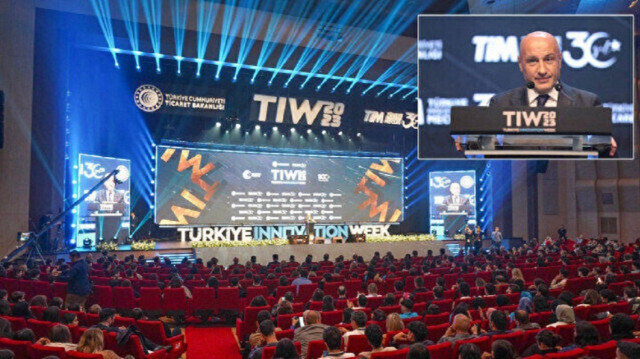
Covering a wide range of critical subjects, from renewable energy sources to food and agricultural technologies, the future of health and education, artificial intelligence, and financial technologies, conferences and panels provide a platform for in-depth discussions
The Türkiye Innovation Week, the largest innovation gathering in Türkiye and the region, has opened its doors in Istanbul with the aim of infusing innovation into international trade. This event brings together young entrepreneurs, technology leaders, and the business community, envisioning a dynamic future driven by innovation.
Organized under the coordination of the Türkiye Exporters Assembly (TİM), the Türkiye Innovation Week (TIW) is a pivotal event held at the Istanbul Haliç Congress Center. Recognizing the 30th anniversary of TİM and the 100th anniversary of the Republic of Türkiye as a milestone, TIW delves into 10 mega topics that will be crucial for humanity's need for innovation in the coming century.

Covering a wide range of critical subjects, from renewable energy sources to food and agricultural technologies, the future of health and education, artificial intelligence, and financial technologies, conferences and panels provide a platform for in-depth discussions.
Mustafa Gültepe, the President of TİM, highlighted the significant contribution they make to Türkiye's international trade, stating, "In the second century of our country, we aim to place Türkiye among the top 10 countries in exports." Emphasizing the importance of high technology, R&D, design, branding, and innovation in his statement, President Gültepe expressed the goal of making innovation a lifestyle, especially for the youth.
Celebrating its 10th edition this year, the Türkiye Innovation Week brings together young entrepreneurs, future leaders, the business community, and innovation and technology pioneers. The event focuses on comprehensive discussions on sustainability and green innovation, artificial intelligence and automation, health technologies, space exploration and colonization, food production and agricultural technologies, education and learning technologies, transportation technologies and trade logistics, cyber security and defense, renewable energy technologies, and the fintech revolution.

